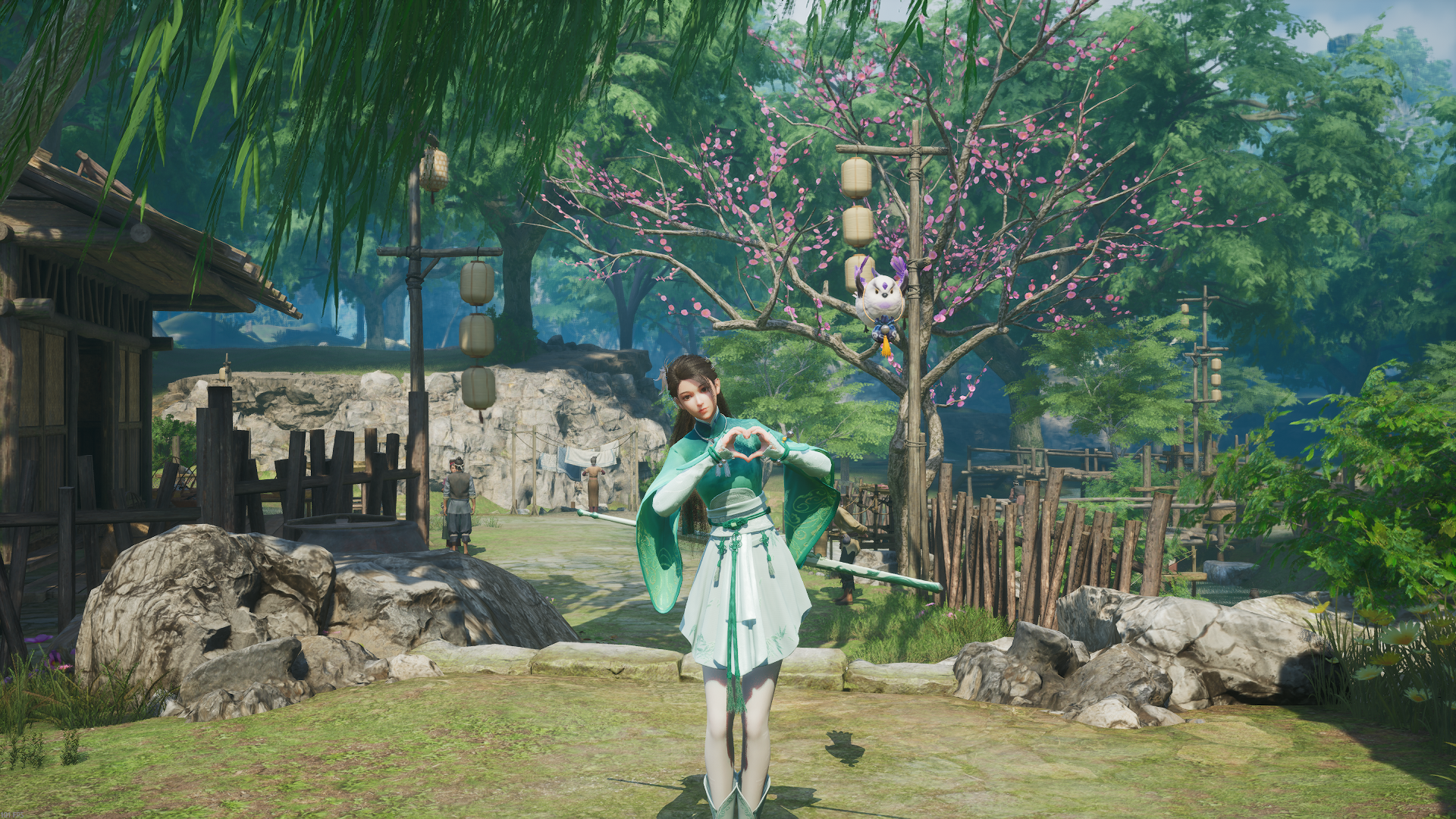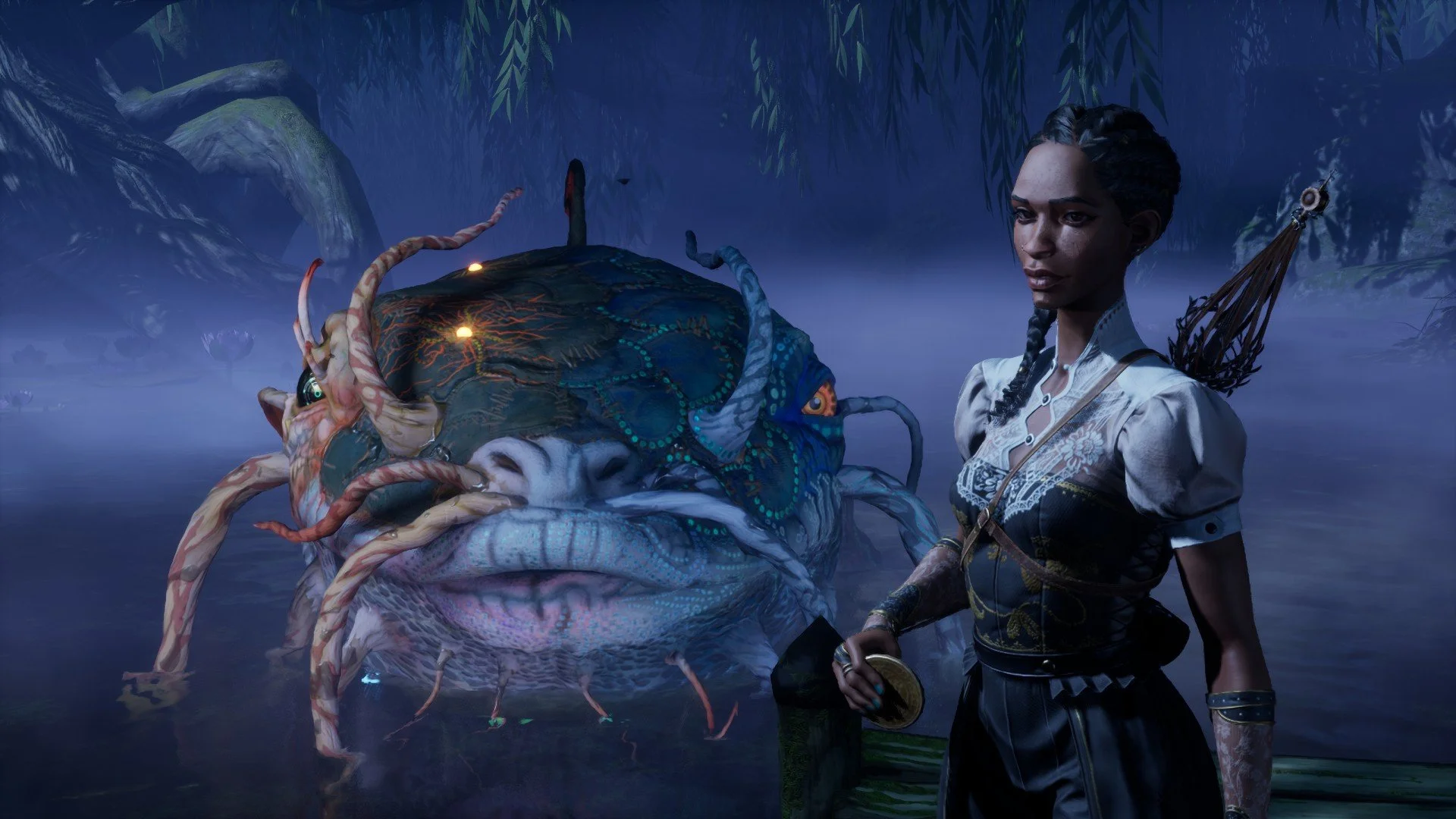Why I’m Drawn to Chinese Fantasy Video Games
I'm Obsessed with Chinese Developed Video Games
Image: Sword and Fairy 7
I've been playing video games since Jungle Hunt on Atari. And if you’ve been gaming anywhere near that long, you probably understand how easy it is to get jaded and begin your search for something fresh. The industry, especially in the West, is crowded with fantasy and RPG games that reuse the same tired aesthetic: medieval Europe, Tolkien-style magic systems, and endless quests in kingdoms full of pale-skinned knights and gloomy castles.
I had been a loyal World of Warcraft player from 2004 to 2019. I’ve also poured a lot of hours into The Elder Scrolls Online. But lately, even with expansions and patches, everything just feels the same. As a writer, I get early access to new games from indie teams, AA studios, and major AAA developers. Don’t get me wrong. Game developers and writers do their big one and I’m not discounting their hard work. However, I often feel like I'm looking at different versions of the same game with slightly updated graphics and new character names.
That changed when I started paying more attention to video games developed in China. It wasn’t just about trying something new. It was about stepping outside the Eurocentric lens that defines most of the West’s fantasy genre. Chinese games have opened up a new way to think about magic, myth, and even storytelling structure.
Western Fantasy Feels Like a Loop
There’s no denying the influence of Tolkien on Western fantasy. From Dungeons & Dragons to Dragon Age to Skyrim, the blueprint has been copied countless times. Elves, dwarves, orcs, mages, dragons. All of it ties back to a medieval European foundation.
The problem isn’t just repetition. It’s the cultural limits that come with it. When every fantasy world looks like some version of Britain in the Dark Ages, it’s hard to feel surprised. Even games like Kingdom Come: Deliverance or Pax Dei, which aim for historical accuracy or fresh mechanics, can’t escape that familiar, gray-toned setting.
The stories being told may change slightly, but the worldview remains anchored in Western ideals and assumptions. Good vs. evil. Chosen ones. Royal bloodlines. I’ve seen it all a hundred times. There’s no passion, just a formula for a cash grab.
Game: Gujian 3
Eastern Fantasy Brings a New Perspective
Games developed in China feel different because they are different. They’re grounded in mythologies, philosophies, and aesthetics that don’t mirror Europe. They don’t always care about Western concepts of storytelling or pacing, and that’s part of what makes them exciting.
Playing something like Sword and Fairy, Gujian 3 or Gu Jian Qi Tan isn’t just stepping into another game. It’s stepping into a whole different way of interpreting fantasy. You’re not rescuing kingdoms from dragons; you're balancing spiritual energy, facing celestial trials, or uncovering long-lost sects of cultivators, often making friends along the way.
The landscape shifts too. Instead of gloomy forests and mud-soaked villages, you're traveling across sacred peaks, tranquil villages surrounded by peach blossom groves, and glowing dream realms inspired by Daoist thought and Chinese literature.
There’s also a softness and emotion to the narratives that contrasts with the grittier, morally gray tone common in the West. It’s, for lack of a better word, romantic. In many Chinese fantasy games, characters cry, form bonds over shared tea, and quote ancient poetry. The stories unfold with elegance rather than urgency.
Why Swords of Legends Online Was a Missed Opportunity
Swords of Legends Online, the Western version of Gu Jian Qi Tan, had all the ingredients to be a hit in the West. The world was rich, the combat was fluid, and the lore was dense with mythology. But when Gameforge tried to bring it to the Western market, in addition to the lack of marketing, they stripped out many of the cultural markers that made the game stand out.
The English voiceovers mispronounced names and words and every one had a different accent. Localization softened or outright changed some culturally specific names and ideas. What we got felt like a generic fantasy MMO that couldn’t quite explain itself.
That’s where the Western industry has been stumbling. Instead of embracing the distinct identity of Chinese games, publishers try to make them more “palatable” for an audience trained on World of Warcraft. But these games were never meant to be just “Asian WoW clones.” They reflect a completely different lineage of fantasy and treating them as interchangeable dilutes what makes them powerful.
If you leave the cultural context intact, players get something they’ve never seen before. That’s what builds a fanbase.
Games That Changed How I See Fantasy
When I first played Gu Jian Qi Tan, it honestly changed my perspective on what fantasy games could feel like. The focus on cultivation, spiritual balance, and slow-paced storytelling felt calming rather than adrenaline driven. I wasn’t trying to be a hero. I was trying to understand a world that had its own internal rhythm and history.
And when Gu Jian Qi Tan was pulled from Western markets (it’s still wildly popular in China and other countries outside of Europe and the Americas), I sought more games like it. I found its predecessor, Gujian 3, and it pulled me in even further. The art direction, music, and story felt beautifully cohesive. It was also clear that it was made for a domestic Chinese audience, and that gave it authenticity. As a gamer from the West, I didn’t need everything explained or westernized. I wanted to meet the world on its own terms.
Game: Lay a Beauty to Rest
Then came Sword and Fairy. This series, especially Sword and Fairy 7, reminded me that fantasy can be soft, personal, and myth-driven without needing to rely on a massive world-ending threat. Not to mention, visual novels like Lay a Beauty to Rest tell haunting stories based on ancient prose.
Recently, I’ve been playing House of Legacy. Though, it’s not fantasy, it’s a refreshing change from most city-builders I’ve attempted to play. It allows you to take on the role of a young family patriarch or matriarch in ancient China. House of Legacy shows that characters aren't just warriors. They’re people shaped by duty, family, and tradition. That weight adds meaning to every decision.
Why Representation Matters in Fantasy
Representation doesn’t stop at character design. It includes who gets to build the worlds, write the stories, and decide the rules. Chinese games aren't better because they're different. They're better because they expand what fantasy can be.
For this reason, I was also excited about South of Midnight. It gave me a world centered on Black Southern folklore that didn’t rely on tired stereotypes. It was beautifully authentic, respectful, and familiar in a way I rarely see in games. I want to see more games like this.
Game: South of Midnight
Chinese-developed games do the same for their own cultural narratives. They don't flatten or simplify their stories to fit someone else's standards. They let their heritage shape the gameplay, the visual style, the pacing —everything!
As a Black American gamer, I find that refreshing. I want stories that weren’t built with me as an afterthought. I want to see different worldviews take the lead. Fantasy is stronger when it makes space for more than one lens.
So, if you’ve been stuck in a loop of swords and sorcery that looks the same, try something made outside the usual pipeline. Let different voices lead the way. You might find yourself just as hooked as I am.
Here’s my starter recommendation list for Chinese games on Steam.
Gujian 3: Play a young hero on a journey through ancient legends, spiritual realms, and emotional bonds.
Sword and Fairy 7: Xianxia game with fast-paced real-time combat, following a heartfelt story of gods, humans, and demons caught in a war that challenges fate and love.
House of Legacy: City builder that takes place in a war-torn Ancient China era where you have to rebuild your family’s legacy.
Lay a Beauty to Rest: Visual novel based on the ancient Chinese prose, “Peach Blossom Spring” by poet Tao Yuanming (365-427 ce).



